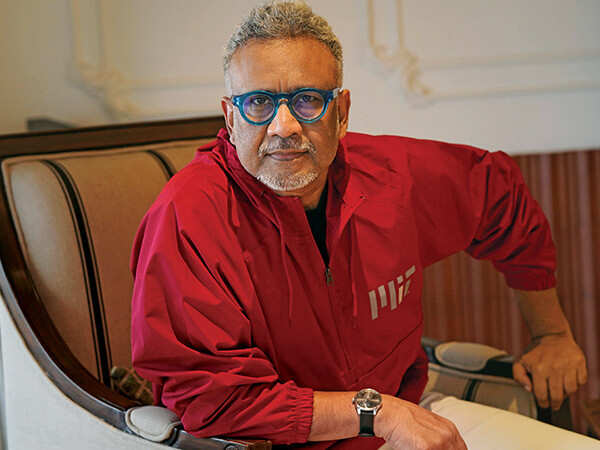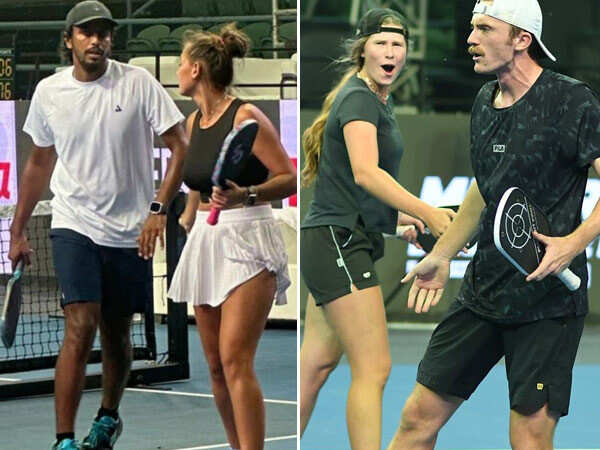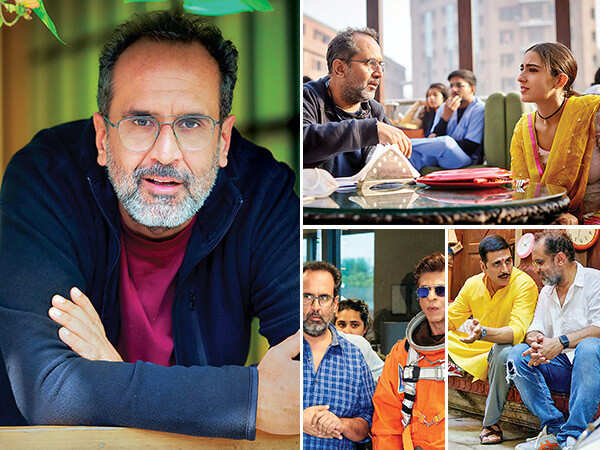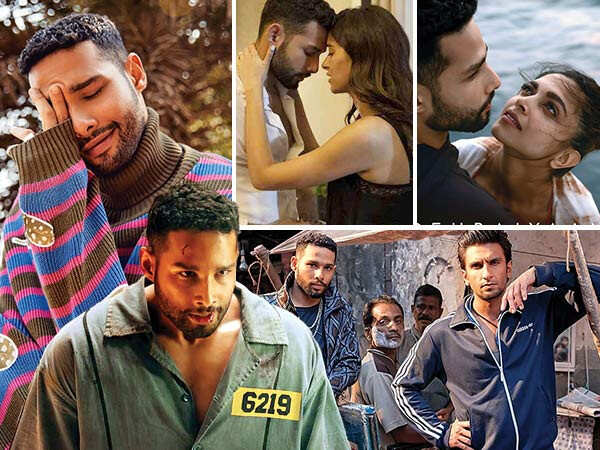Exclusive: Anubhav Sinha on The Kandahar Hijack politics and more
7 min read
Anubhav Sinha was once a very formulaic director who only worked in the commercial space. Mulk (2018) changed all that. He married political activism to cinema and the result was films like Article 15 (2019), Thappad (2020), Anek (2022) and Bheed (2023). With IC 814: The Kandahar Hijack, he has ventured into the OTT space. While he describes it as a non-political venture, read between the lines and you’ll find that he has landed some soft blows both on the unpreparedness of the bureaucrats, who simply failed to control the narrative and the jaded response of the politicians. In between all, the fortitude of the hijack victims shines through. Instead of calling them victims, one should call them heroes for the way they came to terms with their tragedy and survived the hardships. The series is well-researched and well-acted. It has the veritable who’s who of dramatic actors in the cast, with some fans comparing it to an Avengers Ensemble moment for Anubhav Sinha. No wonder the director is eyeing a superhero film next. Excerpts from a hearty tete-a-tete with the maverick.
What is non-negotiable for you as a director?
The art itself is non-negotiable. While creating a film, compromises are inevitable, whether with nature, moments or unexpected outcomes. Sometimes what seems inferior initially can turn out better in hindsight. However, the core artistic vision remains uncompromised.
Your films usually have a political voice…
Yeah, of late, yes.
Is it a conscious choice or are you just attracted towards it more?
I think it’s the latter. It began with Mulk, driven by my strong feelings about societal issues at the time. Although Article 15 was initially titled differently and was written before Mulk, I was drawn to it for similar reasons. There’s no grand design, it’s instinctive. It’s like if someone asked us what we want for lunch: I might choose Indian and you might choose Chinese. While chemical factors might influence our preferences, the choice is ultimately instinctive.
Will we ever get to watch you direct something flossy?
(Laughs) Flossy may appear superficial but it has deeper layers. It will feature an eclair floss on top but will reveal more inside. I believe a film needs a voice to drive it and I am currently focused on refining my approach. This series showcases a distinct shift in form compared to my recent films, reflecting my goal to reach a broader audience and achieve a more cinematic scale.
Talking about IC 814: The Kandahar Hijack, did you come across a lot of interesting details while researching for the project?
There’s a lot to unpack, and some of the conversations I’ve had can’t be directly quoted because they involve officers and bureaucrats I’ve met. Much of the nuance you see in the series comes from those discussions. You learn to separate the individual from their official role because while the role has a specific purpose, the individual often has multiple facets to their personality. When you consider both together, it becomes quite complex and intriguing. Meeting these people and observing different aspects of their personalities made them much more interesting to me. Additionally, my research uncovered many details I wasn’t previously aware of. For instance, while I knew about the plane landing in Lahore, I was unaware of its landing in Dubai until I delved deeper. This revelation prompted me to investigate further: What happened in Dubai? Did they provide fuel, and at what cost? What were the reasons behind Lahore’s refusal to allow the aircraft to land? Understanding these decisions requires considering the context of past events in Pakistan and the circumstances leading up to them. All these layers of information emerged during my research, revealing complexities beyond mere incidents.
You’ve portrayed the hijackers realistically, avoiding the usual demonization.
There are two main points to address. First, our research, which included interviews with passengers, crew members and the captain, revealed that not all five hijackers were seasoned terrorists. Two of them were inexperienced rookies, one was particularly dangerous and one was a last-minute addition to the group. Their lack of cohesion was evident, as you can see from the accounts. Additionally, there’s been some online criticism suggesting that the portrayal of the hijackers is overly sympathetic, particularly regarding the scene where they play Antakshari with the hostages. However, this detail is based on factual information confirmed by the captain and passengers. It would be absurd for a filmmaker to invent such a scene without basis in reality. The depiction of the hijackers is grounded in our research, so I haven’t fabricated their behaviour. When you think of Akbar, you might envision him as depicted in films like Mughal-e-Azam, dressed in elaborate attire and wearing a turban, embodying a heroic image. Such portrayals are often more about creating a legendary figure than reflecting historical accuracy. My approach aims for a more realistic depiction. Most of the characterisation and events depicted, especially those inside the aircraft, are based on verified accounts and real testimonies.
Did you always have this cast in mind for the series?
The cast for the series feels almost like a dream come true. As we wrote, certain actors’ performances began to shape the characters, leading to discussions about casting. The casting director’s input, sometimes aligning with our vision and sometimes offering new perspectives, helped refine our choices. Initially, we cast Vijay Varma, Arvind Swami, Kumud Mishra and Manoj Pahwa. As the script developed, we added Dibyendu Bhattacharya, Kanwaljit Singh, Naseeruddin Shah and Pankaj Kapur. I’m grateful they agreed to be part of this project. Working
with them is an honour and it feels like pure serendipity.
You got Pankaj Kapur and Naseeruddin Shah together in a film. They’ve worked together after years, how was it directing these stalwarts?
The last time Naseeruddin Shah and Pankaj Kapur worked together was in Maqbool. I’ve known them both for many years, Naseer bhai since my college days and Pankaj bhai from 2004. This long-standing relationship made working with them easier and less intimidating. It’s not just about these two; the entire cast, including Aditya Srivastava, whom I first worked with in 1993 and Dibyendu Bhattacharya, whom I admire, added to the experience. Working with such a talented group felt like being in Jurassic Park, exciting and a bit overwhelming. It was a great experience, and having so many talented actors meant ensuring everyone’s contribution was valued. Overall, it was the most blissful time I’ve had on the set in 30 years.
There is this scene in the series where four bureaucrats enter a room and just try to check if it’s safe to stay in that room. It’s pure magic, tell us about that scene…
In Afghanistan, the actors were in a room with potential hazards about safety and privacy. I spent significant time with them before shooting, ensuring we had a clear understanding of their characters. For this particular shot, I placed the camera and told them to act as if they were being watched. I let them enter the room individually to find their roles, then together with minor adjustments. Each character had different priorities: Manoj focused on the number of rooms, Dibyendu on the toilet, Arvind on surveillance, and Kumud on everything. When you watch the shot, you’ll see Kumud’s broad interest. Dibyendu, who is overweight, was chosen to focus on the toilet, reflecting common concerns about its cleanliness and type.
Do you keep your political views away from your films? Or is it not possible?
You can choose to restrict your expression, as I did in this case. Films like Article 15, Bheed and Anek were influenced by my political stance but this particular project was not. My aim here was to present the event as it happened, allowing you to form your own opinion. I intentionally avoided expressing my personal views on the event itself. While there are dialogue about belief and faith, these reflect my personal opinions and are not commentary on the event.
As a director, do you go by the script or do you keep improvising on the spot?
The script is sacred to me but I welcome improvisations within its framework. I rarely alter the core truth of the script on the set. If an actor presents a compelling idea that we didn’t consider during writing, I take a half-hour break to explore it. I’ll integrate the idea into the script, examine its effects on the scene and assess the changes before and after. If I’m satisfied with the results, I’ll proceed with the adjustment. Otherwise,
I refrain from that.
What’s your process on picking a script, instinctive or formula based?
No, no, no. If there was a formula, then we would have done something else. It’s instinctive. Suddenly something turns in your stomach and says, yeah, let’s make this one.
What’s next in the pipeline?
I’m working on several large-scale projects that will have a strong voice. These films will be both visually striking and substantial, serving as effective vehicles for the ideas I want to convey. I haven’t worked on music, visual effects or action in a while. Those elements are making a return in my projects. One of the exciting new projects is a superhero film. Overall, I see these endeavours as a fresh evolution in my filmmaking career.Anubhav Sinha on The Kandahar Hijack, working on a superhero film and more. Continue reading …Read More



